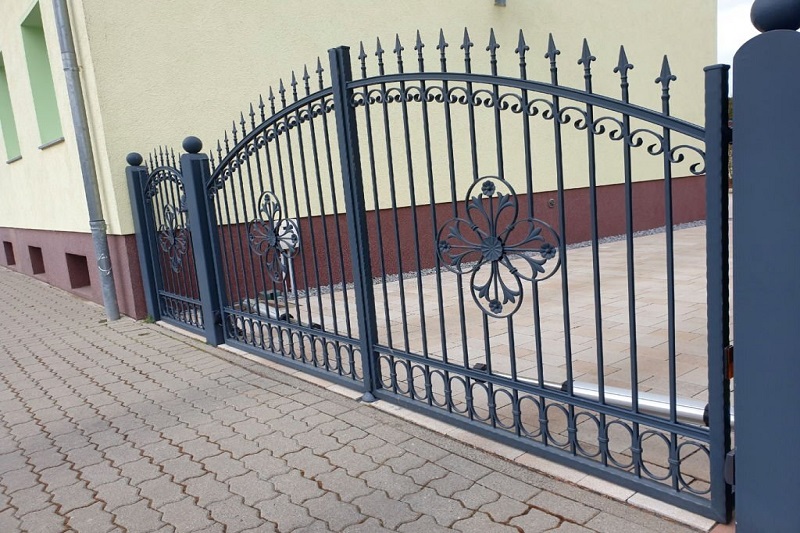Home gates are a crucial component of a house, providing security and privacy. With so many options available in the market, choosing the right gate can be overwhelming. In this guide, we will discuss the different types of gates and factors to consider when selecting the perfect one for your home.
Types of Gates
- Swing Gates: Swing gates are the most common type of gates, hinged on one side and swing open like a door. They are suitable for homes with sufficient space for the gate to swing open. Swing gates can be made of various materials, such as wood, iron, or aluminum, depending on the desired look and level of security.
- Sliding Gates: Sliding gates are an ideal choice for homes with limited space, as they slide parallel to the fence. They require less room to operate and are easier to maintain than swing gates. Sliding gates are typically made of metal, such as steel or aluminum, for added durability.
- Bi-Fold Gates: Bi-fold gates are a combination of swing and sliding gates. They are designed to fold in half, reducing the amount of space needed for them to operate. Bi-fold gates are suitable for homes with limited space and are available in different materials, including wood, aluminum, and steel.
Factors to Consider
- Purpose: The primary purpose of a gate is to provide security and privacy. Determine your security needs, such as the level of access control, and choose a gate that meets those needs. You should also consider the purpose of the gate, such as whether it’s for pedestrians or vehicles. Gates for vehicles are usually wider and require more space to operate than gates for pedestrians.
- Material: The material you choose for your gate will impact its durability, maintenance requirements, and aesthetic appeal. Common gate materials include wood, iron, aluminum, and steel. Wood gates are a popular choice for their natural look, while metal gates provide added security and durability.
- Style: The gate style you choose should complement your house’s architectural style and enhance its curb appeal. The gate’s design can vary from classic to modern, depending on your preferences. Consider adding decorative elements to the gate, such as ornate designs or metalwork.
- Maintenance: Maintaining your gate is essential for its longevity and performance. Gates made of wood require more maintenance than metal gates, which are more resistant to wear and tear. Consider the maintenance requirements of your chosen gate material and ensure you have the resources and time to maintain it properly.
- Cost: The cost of a gate can vary depending on the material, size, and level of customization. Wooden gates are typically the most affordable, while metal gates are more expensive. Bi-fold gates can also be pricier due to their complexity. Consider your budget and the level of investment you want to make in your gate.
- Automation: Automating your gate adds an extra layer of convenience and security to your home. Automatic gates can be opened and closed with a remote control, keypad, or smartphone app. Consider the type of automation system you want for your gate and ensure it’s compatible with your chosen gate type.
- Installation: Installing a gate requires careful consideration and planning. Determine whether you want to install the gate yourself or hire a professional. Hiring a professional ensures that the gate is installed correctly and operates smoothly. You should also consider any necessary permits or zoning regulations in your area.
Conclusion
Choosing the right gate for your home requires careful consideration of factors such as purpose, material, style, maintenance, cost, automation, and installation. Consider the needs of your household and the available space when selecting the perfect gate. With the right gate, you can enhance your home’s security and curb appeal, providing a welcoming and secure.
